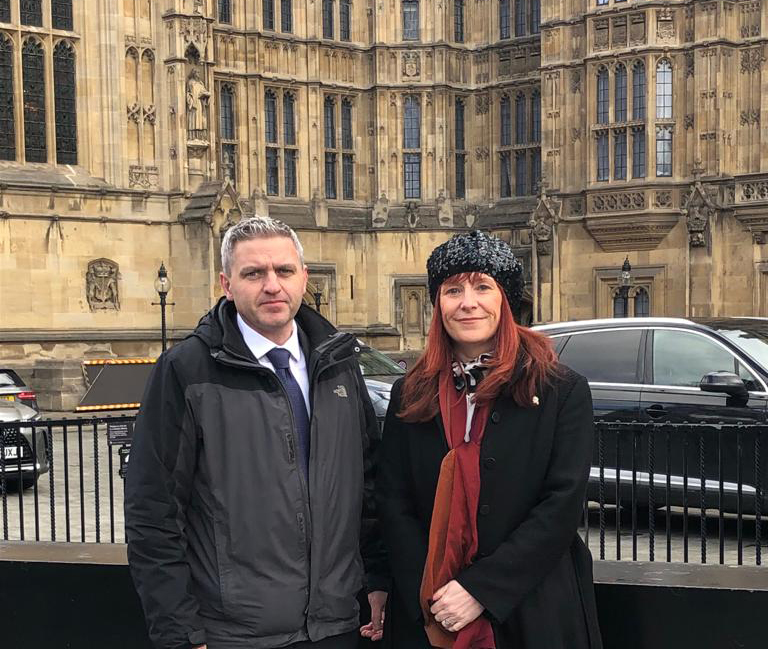Róisín Wood, CEO of the Community Foundation, today gave evidence to the House of Lords inquiry into Digital Exclusion and the cost of living.
The House of Lords Communications and Digital Committee is looking at the impact of digital exclusion on individuals and more broadly how digital exclusion impacts on economic growth.
Speaking following the evidence session, Róisín Wood, CEO of the Community Foundation said:
“The Community Foundation presented evidence today that highlights the need to have a unified Digital Strategy for Northern Ireland with a clear emphasis placed on digital exclusion having a detrimental impact on our economy, access to services and wellbeing.
“At present Northern Ireland is the most digitally excluded region within the UK, ranking below the UK average for adults with basic digital skills. There is also a very clear urban /rural divide with 17% of rural premises unable to receive decent broadband from a fixed line.
“The digital divide and digital poverty were very much exposed throughout the COVID pandemic. The current cost-of-living crisis is making things worse. When faced between the choice of heating and eating or having a digital device with an internet connection at home the former takes precedence.
“We currently have people not being able to access vital online services such as banking or the job market, attempting to gain qualifications on a mobile phone, or travelling for miles just to access a computer or a good internet connection in their nearest library.
“This is no way to advance our communities or to boost local economic growth.
“Through our recently published ‘Wired Up’ report we spoke directly to community organisations and those they work with we are very aware of the need for enhanced digital access and skills.
“We need a Digital Strategy for Northern Ireland brought forward and properly resourced, with clearly defined targets with collaboration between government, the private sector and the community and voluntary sectors.
“We must ensure such a strategy is aimed at building access and skills and ensuring that those most at risk of being left behind digitally are given the additional supports that are needed.”


